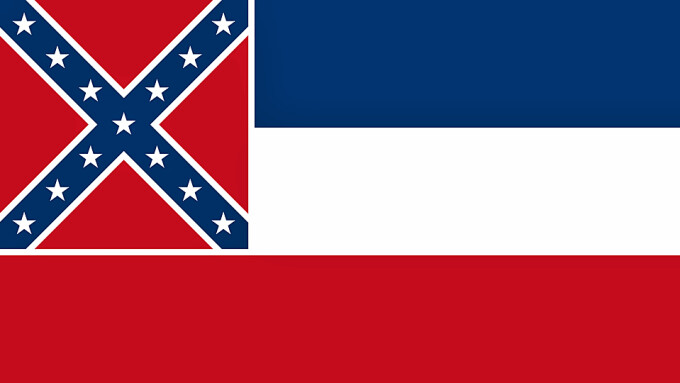LOS ANGELES — The State of Mississippi is the latest casualty in the fight for free expression as its House of Representatives attempts to rally fellow southern strongholds into forming a cabal to “take on the porn industry.”
Pushed by Rep. Tracy Arnold, the “new drug” of antiporn grandstanding comes to the state in the form of HB 1116 and HB 1120, with the bills reportedly making it through the state’s House Interstate Cooperation Committee before moving on to the Judiciary B committee for approval and perhaps on to the full House for a vote after that process.
Maybe it’s a desire for strength in numbers, or just a fond look back to its Confederate past when the state and its neighbors decided to throw off America’s values to embrace its own regressive antebellum ideals, but HB 1116 calls for an interstate pact that would establish “an area of moral decency” across Dixie by banning online porn.
The bill hopes that a nonexclusive “Commission of Southern States” that would include Mississippi, Georgia, Arkansas, Louisiana, Alabama, Kentucky, Tennessee, West Virginia and Oklahoma, could enable the states’ governors to push for new laws banning porn.
According to Y’all Politics, Arnold instigated his agenda after “one of his own children received an inappropriate photo on a popular social media messaging app” and believes that it is urgent for lawmakers to protect children and society at large by removing undesirable images from the internet.
"Protecting children" is a laudable goal and one that is embraced by the industry-backed nonprofit ASACP. But seldom does any attempt to limit content succeed when social media platforms and their high-dollar lobbyists carve out sweetheart exemptions that fail to address the problem’s scope.
HB 1120 also calls on the Commission of Southern States to prohibit the advertising of "obscene" content on social media platforms. However, "obscenity" is a specific legal term and has long been a crime at the federal level and not the province of legitimate companies.
Y’all Politics commented on the issue with a direct quote of the First Amendment, which includes, “Congress shall make no law … abridging the freedom of speech, or of the press.”
Arnold was quick to counter. "This isn't an attempt to infringe on anyone’s rights; it's to protect our children," he explained, which sounds peachy in an election year as he outlined his ideas for what constitutes "porn." He is also adamant that the industry is fueling "human trafficking" — another sweet candy phrase for addicts of the new drug.
“Arnold said that often-times people are viewing these violent pornographic images and then repeating them in real life, causing harm to victims of trafficking. He said pornography opens a gateway for sex trafficking, which is not only happening on the street corners anymore but on the smartphone,” Sarah Ulmer wrote for Y’all. “Arnold added that the end result would be for the state’s internet providers to create the filters that would restrict access for pornographic material on a web browser.”
Ulmer noted that HB 1116 referenced several Supreme Court cases including Ashcroft V. American Civil Liberties Union and its finding that legislators “may undoubtedly act to encourage the use of filters… It could also take steps to promote their development by industry, and their use by parents.”
“[Arnold] took that to mean that the Supreme Court was signaling to lawmakers to pass filter legislation that would require consumers to opt-in if accessing sensitive adult material,” Ulmer concluded.
Will the south rise again, this time to smash porn?
Stay tuned to XBIZ.com for the latest developments in the War on Porn.






